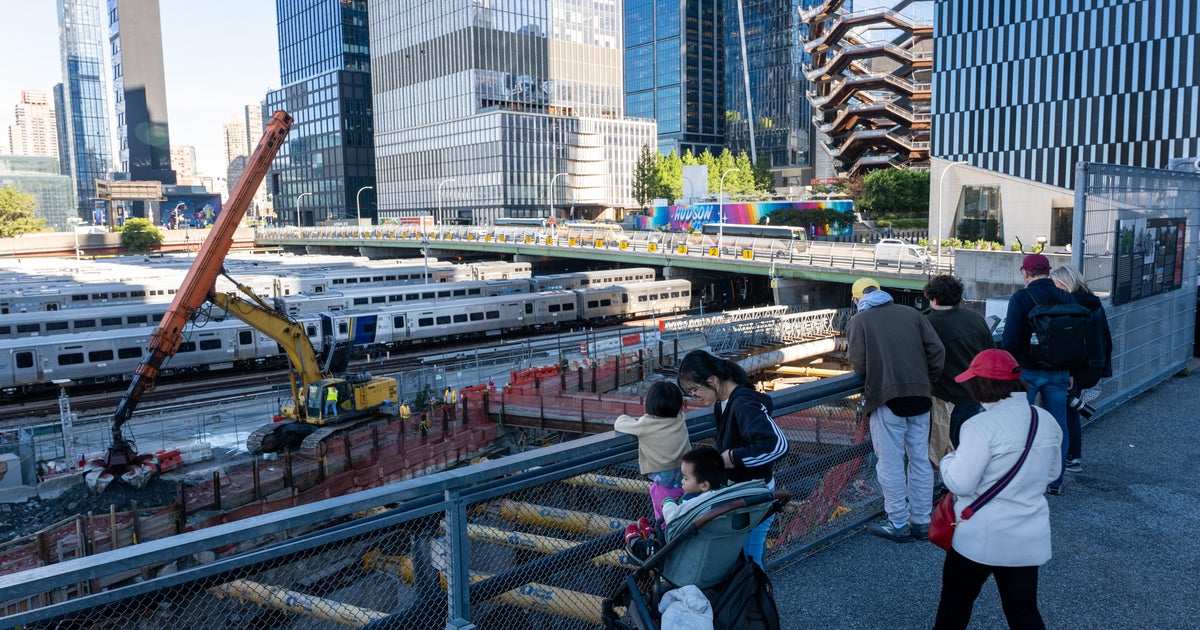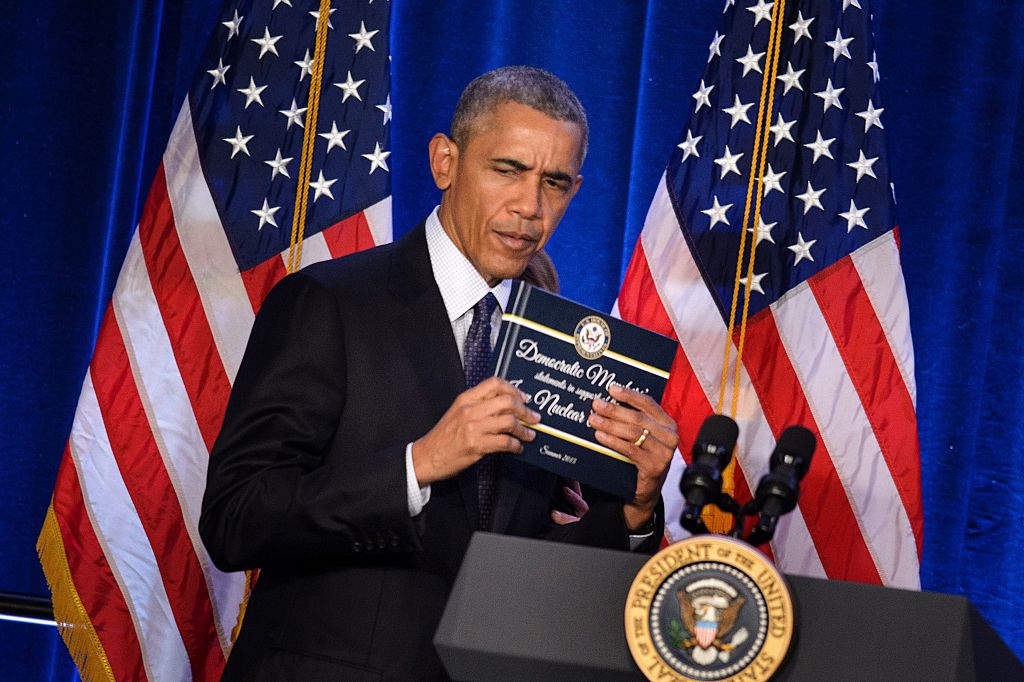Transcript: Israeli Prime Minister Benjamin Netanyahu on "Face the Nation"
President Trump announced from the White House Friday that his administration "cannot and will not" certify Iran's compliance with the Iran nuclear agreement to Congress.
Israeli Prime Minister Benjamin Netanyahu -- a longtime opponent of the Iran nuclear deal -- joined "Face the Nation" Sunday to discuss the Trump administration's actions.
What follows is a transcript of the interview, which airs Sunday, October 15, 2017, on "Face the Nation."
JOHN DICKERSON: Welcome back to "Face the Nation." One of the biggest opponents of the Iran nuclear deal was Israeli Prime Minister Benjamin Netanyahu. He joins us from Jerusalem. It's good to be with you, Mr. Prime Minister. Why do you think what the president has done is going to lead to a better situation?
BENJAMIN NETANYAHU: Well, I'm focused on the result. And I think that right now the deal as it stands guarantees that Iran will have not a single nuclear bomb but an entire nuclear arsenal within 10 years. And I think the president was very courageous in saying, "I'm not going to kick this can down the road. I'm not going to say, 'Well, it's going to be on somebody else's watch.' I'm going to stop this from happening."
Because remember we cannot allow Iran, the world's foremost terrorist regime, that hangs gays, kills protesters, jails journalists, and foments aggression throughout the region and the world. We cannot allow this rogue regime 30 times the size of North Korea's economy to have a nuclear arsenal. It's a very brave decision, and I think it's the right decision for the world.
JOHN DICKERSON: To get the leverage that would be required to get what you want, Iran has to be isolated by the world community and split at home. Hasn't the president's view, based on the ally reaction, united the allies that were part of this deal against what President Trump is doing?
BENJAMIN NETANYAHU: Well, they say that they want to keep the deal. And the president's said correctly, "Either fix it or nix it. Either change it or cancel it." If they want to save the deal, then the European allies should start working with the United States to actually correct its deficiencies, and there are many. They're very clear, and they have to be changed. And it's an opportunity that President Trump has created for them to fix this very bad deal, which is dangerous for them no less than it is for others.
JOHN DICKERSON: The allies to the agreement believe that changing it in fact breaks it.
BENJAMIN NETANYAHU: No. In fact if you don't change it, you break it. That's what the president told them. That if they don't change it, if they don't fix it, if they don't prevent Iran from automatically getting in a decade to a nuclear arsenal, then he'll change it.
He'll cancel the deal. So I think that once they realize that this is the American position, they should join forces with the United States and with the president and work to change this. And, by the way, you should know that in the Middle East something very historic is happening.
I mean, it's not just Israel that is supporting the president. It's key Arab states like Saudi Arabia and the Emirates. And I suggest that, you know, when Israel and the key Arab states agree on something, you know, you should pay attention. We're close with our ears to the ground. We live right here next to Iran. We see what it's doing. And I think that what the president has done is created now space to prevent a very bad deal from materializing and to fix it. Everybody should join forces in doing just that.
JOHN DICKERSON: What's your response to those, including the signatories to this agreement, who say that Iran has been abiding by the agreement and that while 10 years is a deadline you picked that in fact there are longer deadlines Iran where will be monitored and if they break and try to move back to a nuclear capability the entire world will see and jump on them right away?
BENJAMIN NETANYAHU: John, I've always said that the greatest danger of this deal is not that Iran will violate it but that Iran will keep it. Because under the deal, in a few years' time, Iran is guaranteed to have as many as 100 nuclear bombs. That's folly. And kicking the can down the road is not wise policy. So whether or not they keep it or violate it is not the point.
The point is they have a highway right now, assuming they keep the deal, to get to that point where they become a terrorist rogue regime with a vast nuclear arsenal. So that really has to be stopped. And I don't think the issue right now is whether they keep it or whether they violate it. The issue right now is we've got to change the destination to which they're heading.
JOHN DICKERSON: The supporters of the deal obviously dispute your characterization of their ability to get those bombs. But let me ask you about this scenario, which is: What if Iran looks at what President Trump has done and says, "Okay, no deal. We're going to go back to the full sprint to a nuclear program and blame the U.S. president for breaking the agreement"?
BENJAMIN NETANYAHU: Well, they could have done that right from the start. They could have the rushed to the bomb. You know, they never wanted to do that because there's always been a combination of the threat of a credible military response, which, by the way, we put forward. We didn't need others to put it forward. And, equally, crippling sanctions.
Remember I stood in the U.N. a few years ago and I drew that red line? That's before the deal. They didn't cross it because they knew what the stakes are. And Iran today knows that if they do what you just said, they're going to get crippling sanctions on their head. The U.S. alone can do that. The U.S., you know, it's a very powerful economy.
It's almost a $20 trillion economy. The Iranian economy is 2% of that. So you think when countries have to choose between the U.S. economy and the Iranian economy, what will they choose? That's a no-brainer. So Iran faces crippling sanctions by the U.S. alone, let alone the U.S. with its allies. I think they're going to think twice.
JOHN DICKERSON: All right. Mr. Prime Minister, thanks so much for being with us.
BENJAMIN NETANYAHU: Thank you.



